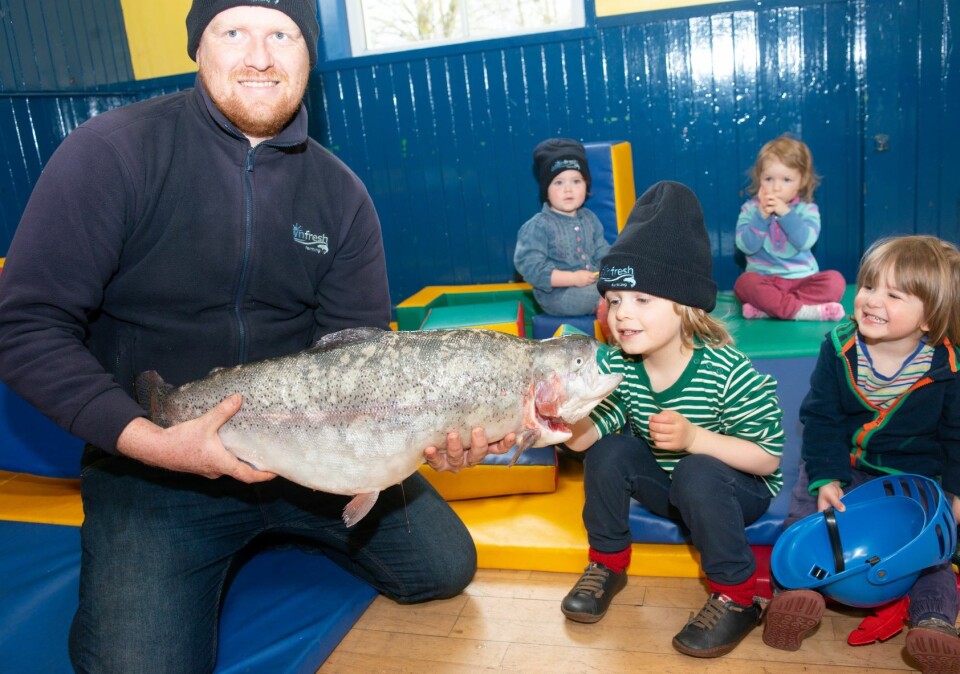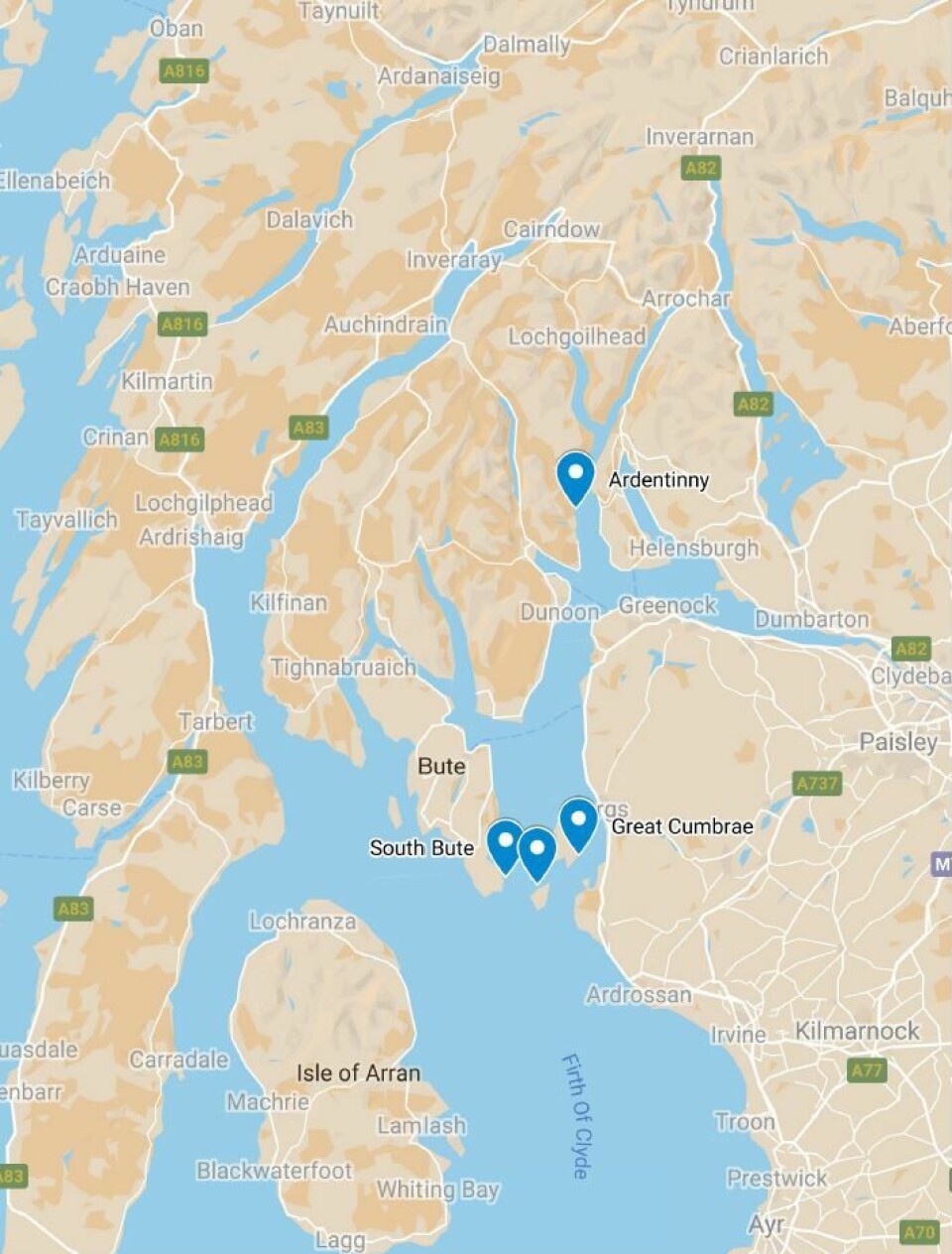
Dawnfresh bids to double Scottish trout production
Scotland’s biggest trout farmer, Dawnfresh, has revealed £16 million plans to substantially increase production and create 36 jobs.
The company – which harvested 4,544 tonnes of trout in 2017-18 -has submitted scoping reports for four fish farm sites across Argyll and Bute and North Ayrshire as the first steps in the planning process.
If it proceeds with a planning application and it is consented, the proposed off-shore sites at Ardentinny, Isle of Bute, Great Cumbrae and Little Cumbrae would produce around 14,000 tonnes of trout per 22.5-month cycle.

Seven new workboats
The planned £16m investment includes seven new workboats and four new feed barges and would increase Scottish trout production by around 7,000 tonnes per year, almost doubling the current production level.
Dawnfresh has already been in touch with local community councils, in September 2017 when current meters were placed in the water and in December 2018 when CAR (Controlled Activities Regulations) licence applications were submitted to the Scottish Environment Protection Agency (SEPA).
The company’s farming director, Alison Hutchins, said: “Through meticulous planning and research, the locations of these sites have been selected in keeping with the recent recommendations of the Rural Economy and Connectivity (REC) Committee towards high energy and off-shore but they also benefit from being located in and around the Firth of Clyde which has a heritage of production. These locations will allow us to protect the health and safety of our fish with minimal impact on the environment.”
Hutchins added that Dawnfresh is committed to supporting the local communities it operates in “and will continue to provide local people in Argyll and Bute and North Ayrshire with information and opportunities to give their views throughout the application process”.
Dawnfresh farms rainbow trout at four seawater sites in Loch Etive, and at two freshwater sites in Loch Awe and another in Loch Earn.
High-energy sites
The company’s environmental manager, Peter MacDougall, said that although the sites are high-energy, Dawnfresh wouldn’t be going into completely uncharted waters.
“There’s a very strong current flow at those sites, and they’re more exposed than the locations we’ve farmed in so far. But the current flow in Loch Etive is surprisingly strong; it’s something that certainly shocked me when I came into the business, the strength of tide that exists there. So, it is a step up from what we’ve been operating but it’s not quite as big as you would imagine,” said MacDougall.
“Exposure-wise, it’s a bigger step. Certainly, the sites further to the south will have the kind of wave exposure you wouldn’t get in a loch.”
Impact assessment
He said the feedback from the scoping process, which entails giving details of the plans to local authorities, would be used to generate an environmental impact assessment.
“Once we get to that stage, then we’ll be in a position to put a planning application in,” explained the manager. “It’s very difficult to predict a timescale. A lot depends on what comes back from that screen scoping.”
MacDougall said the CAR licence, planning and marine licence applications would give the general public three separate opportunities to comment on the plans, “but we would hope to speak to as many people as possible during the community consultation, so if concerns are raised we can answer those questions”.
Dawnfresh will focus on the communities on Great Cumbrae, Bute and at Ardentinny. Little Cumbrae is uninhabited.
Shore bases
“We would look to operate our shore bases from those centres of population,” said MacDougall. “Things like that can have a big impact, as can the jobs that will be created. It would always be our preference to employ locally.”
Dawnfresh Seafoods Limited posted a loss of £7.4m for the 2017-18 financial year, a small improvement on the £7.7m loss the year before.
In its annual report, it said gross margin increased to £4.7m from £2.8m, and that both its export and UK trout business opportunities continued to grow based on its continued investment and development in Scottish aquaculture.
The report stated that the company has ambitious plans to grow, and with the continued support of shareholders remained financially secure. During the year shareholders subscribed for a further £7.75m in ordinary shares.























































